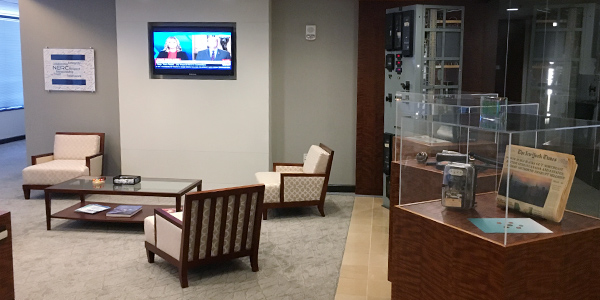NERC and the regional entities have temporarily expanded their self-logging program to allow registered entities to focus on their response to the coronavirus pandemic.
The self-logging program was introduced in 2015 and allows utilities, with permission of their regional entities, to log instances of potential noncompliance with NERC reliability standards that pose minimal risk to the bulk power system for future review by the ERO Enterprise, rather than submitting a self-report. Noncompliance events logged in this manner are typically resolved as compliance exceptions, which are not included in a registered entity’s compliance history for penalty purposes.
According to the guidance released on Thursday, all registered entities — regardless of whether they are already part of the program — will now be allowed to self-log instances of noncompliance that pose either a minimal or moderate risk to the BPS, as long as the noncompliance is because of “actions to address coronavirus impacts [that] disrupt, complicate or otherwise alter the normal course of business operations.”
NERC has posted a logging spreadsheet template on its website for its compliance monitoring and enforcement program (CMEP). This form should be used by all registered entities for coronavirus-related noncompliance logging, including those that are already part of the self-logging program. Utilities that have not already registered for self-logging will not be entitled to do so for noncompliance instances that are not pandemic-related and will not be considered enrolled in the program following the expiration of the guidance on Sept. 30.
“This expansion allows [registered entities] to focus their immediate efforts and resources on maintaining the safety of their workforce and communities,” NERC said in a statement. “Under this temporary expansion … potential noncompliance related to coronavirus impacts and logged consistently with this guidance is expected to be resolved without further action.”
NERC and the REs, as well as FERC, will review registered entities’ logs at least once each month. Registered entities are required to maintain evidence related to noncompliance incidents for 18 months from the date the logs are submitted to their REs.
NERC Pushes Regulatory Relief
The expansion of the self-logging program is in keeping with several previous moves to ease compliance burdens for utilities dealing with the COVID-19 outbreak. In March, NERC and FERC announced they would use “regulatory discretion” to address difficulties registered entities may have in the following categories:
- Inability to obtain and maintain personnel certification for the period of March 1 through Dec. 31;
- Failure to perform periodic actions required by reliability standards between March 1 and July 31; and
- On-site activities through at least July 31, including audits and certifications, that would ordinarily be performed by REs. (See FERC, NERC Relax Compliance in Light of COVID-19.)
In addition, FERC agreed in April to defer the implementation of seven reliability standards scheduled to take effect this year. (See FERC Agrees to Defer Standards Implementation.) The commission said the delay was intended to reduce pressure on registered entities to ensure compliance with the new standards while implementing coronavirus response measures.
“We don’t want FERC and NERC to be a burden to industry while we’re in this very constrained operating posture,” NERC CEO Jim Robb told the Member Representatives Committee in April. “[We] want to [be] very clear that our commitment is to work with industry to address these issues together.”



